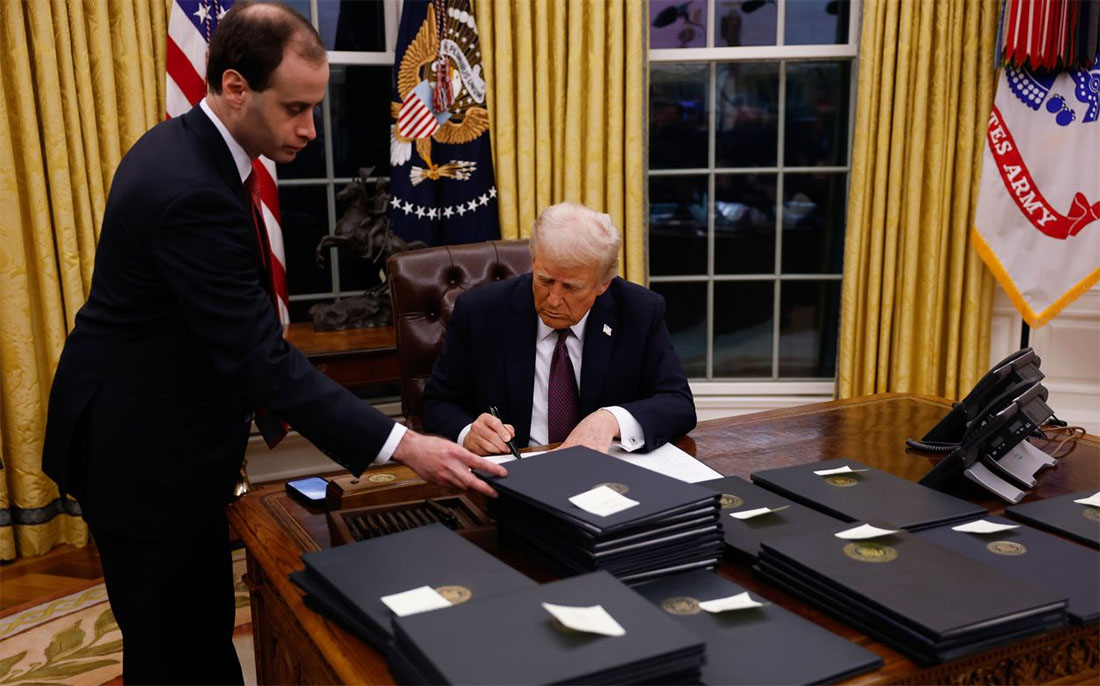Photo Credit: Getty Images
The united states' incumbent President, Donald Trump signed an executive order on January 20, 2025, initiating the United States' withdrawal from the World Health Organization (WHO). This marks the second attempt by Trump to separate from the global health agency, following an unsuccessful effort during his first term in 2020.
The executive order cites several grievances, including alleged mishandling of the COVID-19 pandemic, failure to implement reforms, and what Trump characterizes as "unfairly onerous payments" from the United States. "World Health ripped us off, everybody rips off the United States. It's not going to happen anymore," Trump declared at the signing ceremony following his inauguration.
The financial implications of this withdrawal are substantial. As the WHO's largest financial contributor, the United States currently provides approximately 18% of the organization's $6.8 billion budget for 2024-2025. This departure threatens to destabilize critical global health initiatives, particularly programs addressing tuberculosis, HIV/AIDS, and emergency response capabilities.
Lawrence Gostin, faculty director of Georgetown University's O'Neill Institute for National and Global Health Law, warns of severe consequences. "This is going to be a grave strategic error that will make America less healthy and less safe," he told USA TODAY, emphasizing that the withdrawal would isolate the United States both diplomatically and in pandemic response efforts.
The WHO has responded diplomatically to the announcement. According to spokesperson Tarik Jašarević, Director-General Tedros Adhanom Ghebreyesus expressed willingness to cooperate with the incoming Trump administration, highlighting how the partnership "has protected and saved millions of lives in America and around the world."
The withdrawal process, governed by a 1948 joint congressional resolution, requires a one-year notice period and full payment of financial obligations for the current fiscal year. This complex disengagement will impact decades-old institutional relationships, including the CDC's global presence and crucial information-sharing networks essential for disease surveillance and response.
Health experts particularly worry about emerging threats. With mpox causing fatalities in Africa and bird flu presenting potential pandemic risks, the timing of this withdrawal raises concerns about America's future capacity to respond to global health emergencies effectively.
As the only major power to withdraw from the 194-country body since its 1948 founding, the United States' departure marks a significant shift in global health governance, potentially reshaping international cooperation in managing future health crises.


